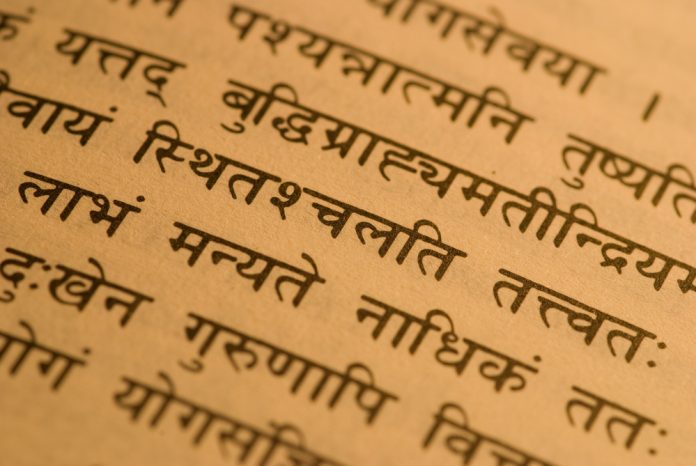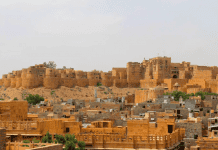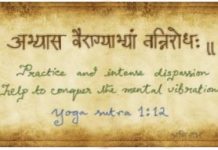We studied Sanskrit in school, albeit with the aim of scoring high in the final examination, hardly realising that this exotic language of ancient India is the door to the secrets of our sacred ancient texts, which can unravel many a mystery of spiritual life and heritage, which is not just celebrated in India but all over the world.
Last year, on my annual trip to Cambridge for the annual alumni festival, I came upon the most interesting exhibition that housed the Sanskrit and Pali manuscripts of a woman scholar who studied the two languages at Cambridge almost 100 years ago and finally donated her books to the University Library, where they were exhibited for the visiting alumni during the annual festival last year. Interesting, this! I managed to get some pictures of these beautiful displays; I was quite astounded to discover that British scholars were studying Sanskrit at Cambridge even 100 years ago.
It’s the language used in the Bhagawad Gita, the Vedas, and the Upanishads – learning which could unravel the secrets of Hindu religion, its mysticism and the spiritual life; many non-Indian scholars have already translated our ancient Sankrit texts to English, lest the world may remain bereft of the knowledge that forms the backbone of Hindu texts, studies and way of life.
Studying Sanskrit in school was with the single-focused aim of getting through with good marks. But as I recently attended a Bhagwad Gita discourse given by Gurudev Sri Sri Ravi Shankar and the Sanskrit Sambhashanam (or lessons) at the Chitrapur math, my interest in the language has been growing.
The learned men and Gurus in our country uphold the tradition of spreading the knowledge and deciphering the secrets of the holy texts for us. Bhagwad Gita is seen as an entire body of science and, as Gurudev says, anyone who has lived life has lived the essence of Gita.
Interesting facts about the Sanskrit language:
(1) Sanskrit is scientific, the first spoken language of India, and the mother of most languages. Yes, that is true.
(2) It’s also known as devavani – the language of the Gods. Wow!
(3) What we know today is Classical Sanskrit or Laukik Sankrit, created by the great grammarian Panini, and the earlier forms of Sanskrit were different from the one right now. Interesting.
(4) One of the first ancient texts to use the Sanskrit language was the Rig Veda – the first of the four Vedas – written in 2000 BC. Amazing!
(5) Panini later made the language more scientific and logical and that became the Classical Sanskrit language that we know of and use today, which is very different from the one the Vedas were written in. Revelation!
Some of the famous institutes in India (also promoted by the HRD ministry) teaching and promoting Sanskrit are Maharshi Sandeepani Rashtriya Veda Vidya Pratishthan in Ujjain, Rashtriya Sanskrit Sansthan in New Delhi, Rashtriya Sanskrit Vidyapeetha
in Tirupati in AP, and Shri Lal Bahadur Shastri Rashtriya Sanskrit Vidyapeeth
in New Delhi.
Here are some famous Sanskrit shlokas (verses) with translations:
From the Bhagwad Gita – Chapter 18, Verse 78:
“Yatra yogeśhvaraḥ kṛiṣhṇo yatra pārtho dhanur-dharaḥ
tatra śhrīr vijayo bhūtir dhruvā nītir matir mama”
Translation: Wherever there is Shree Krishna, the Lord of all Yog, and wherever there is Arjun, the supreme archer, there will also certainly be unending opulence, victory, prosperity, and righteousness. Of this, I am certain.
One of the most important verses from the Rig Veda (1.164.46) is:
“Ekam sat vipra bahudha vadanti”
Translation: the reality (truth) is ONE: the wise call It by various names.
This article is a reflection of the writer’s own interest in the language Sanskrit and some of the verses have been reproduced after referring to different sources. Some of the facts stated have also come up in the research on the topic.


















